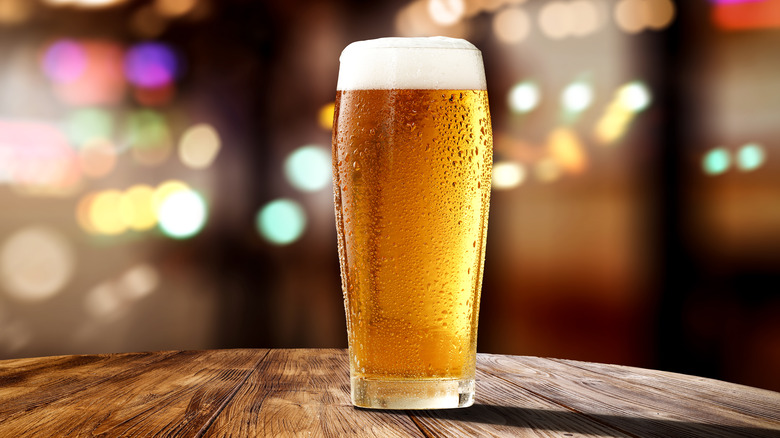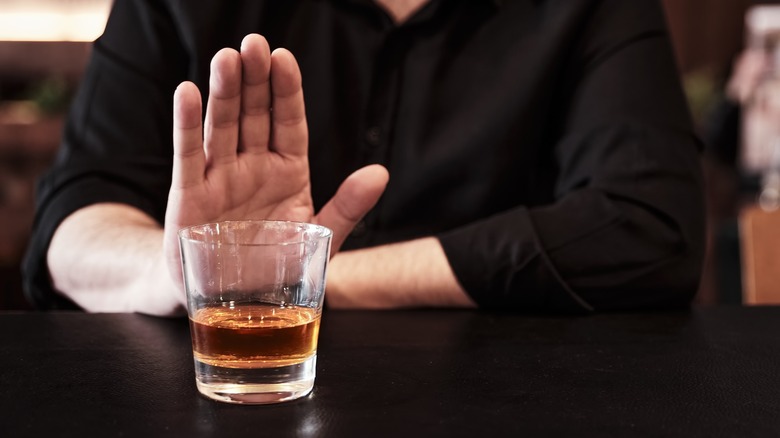The Crucial Difference Between 'Non Alcohol' And 'Alcohol Free' Labels
Non-alcoholic beers are certainly not new, but their trend in popularity definitely is. According to NielsenIQ, the sales of non-alcoholic beverages rose by 20.6% from August 2021 to August 2022, with total sales equaling $395 million in the United States. In an October 2021 study, previous alcohol drinkers revealed why they decided to cut back. Of the 22% of responders opting to drink less, 37% said they simply don't go out as much, while 36% claimed alcohol no longer excites them. Additionally, 34% sited the desire to live a healthier lifestyle, and 13% were more interested in non-alcohol varieties.
According to Amanda Thompson, the CEO of the brand that produces Noughty Alcohol-Free Wine, these drink variations allow those uninterested to continue attending parties and enjoy themselves without feeling unhealthy. "Everyone who gives it proper thought recognizes that whichever way we cut it, alcohol is not healthy. And if you can still party without it, then it's win-win," she said (via Hop Culture). However, labels tend to be misleading at times. Depending on if you'd rather cut back or opt to be completely sober, you'll want to pay close attention to the wording used on alcohol-free beers.
One isn't suitable for sober individuals
If you're not one to research the meaning of labels — which, honestly, makes up the majority of us — you may have been mislead by the non-alcoholic beer market. According to Food Network, beer can be labeled as non-alcoholic if it contains less than .49% ABV. Those looking for complete soberness should instead opt for alcohol-free drinks, which are legally required to contain absolutely no alcohol.
Per Drink Aware, non-alcoholic or low-alcoholic beers are made in a variety of ways. They are usually produced using ingredients that don't ferment, and heated after the fact to evaporate any remaining alcohol. They can also be blended with another type of beverage to limit the amount of alcohol allowed in the beer.
Finding a beer that's completely void of alcohol can admittedly be pretty difficult. One option is Bitburger, a German beer designed to taste like a pilsner. Its ingredients are quite simple, only containing water, hops, malted barley, and hop extract.

